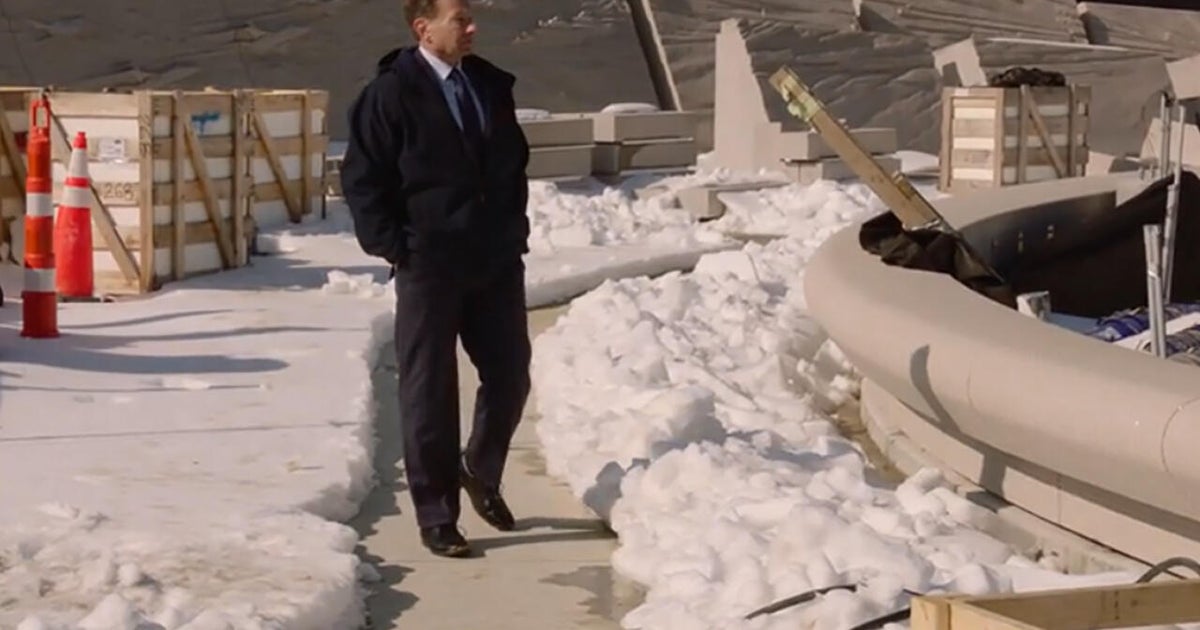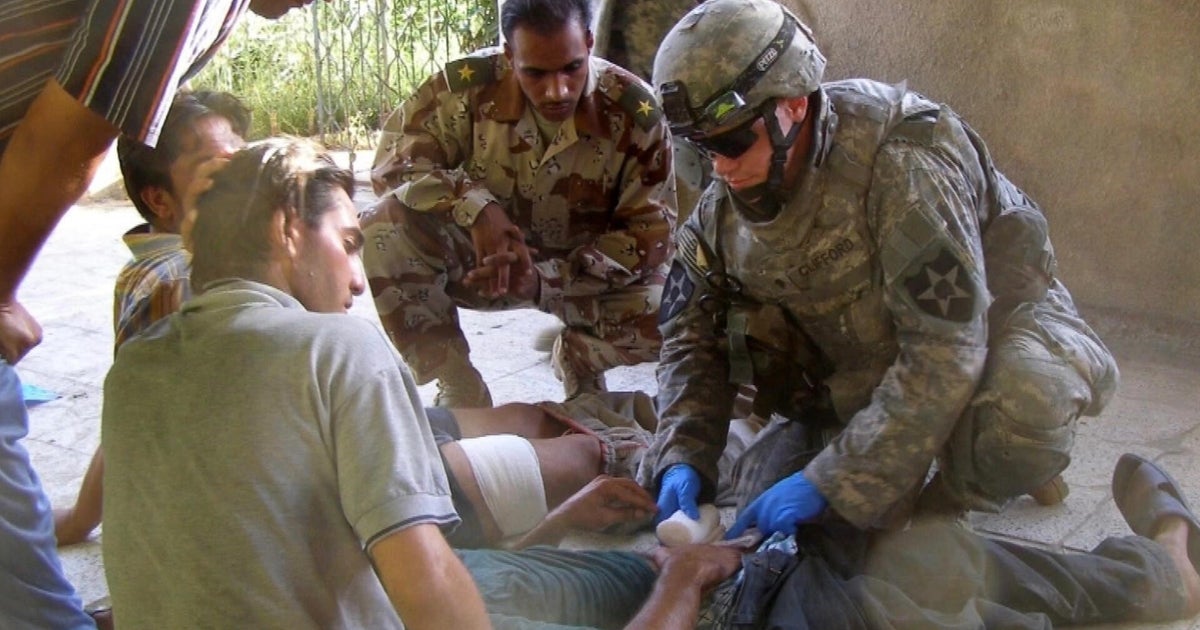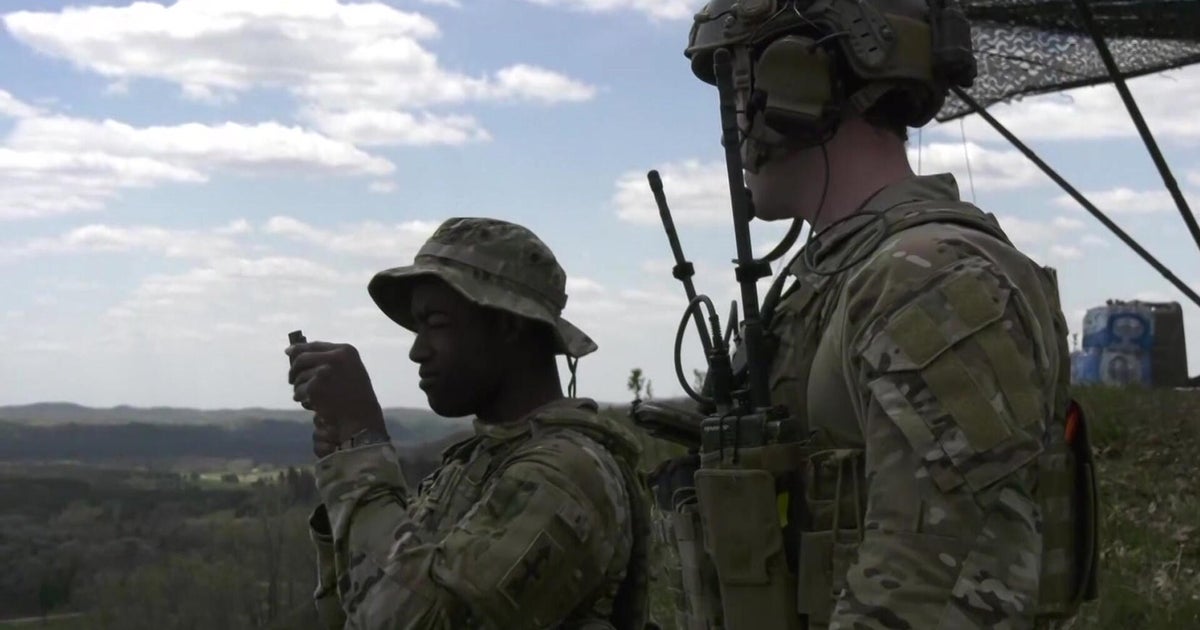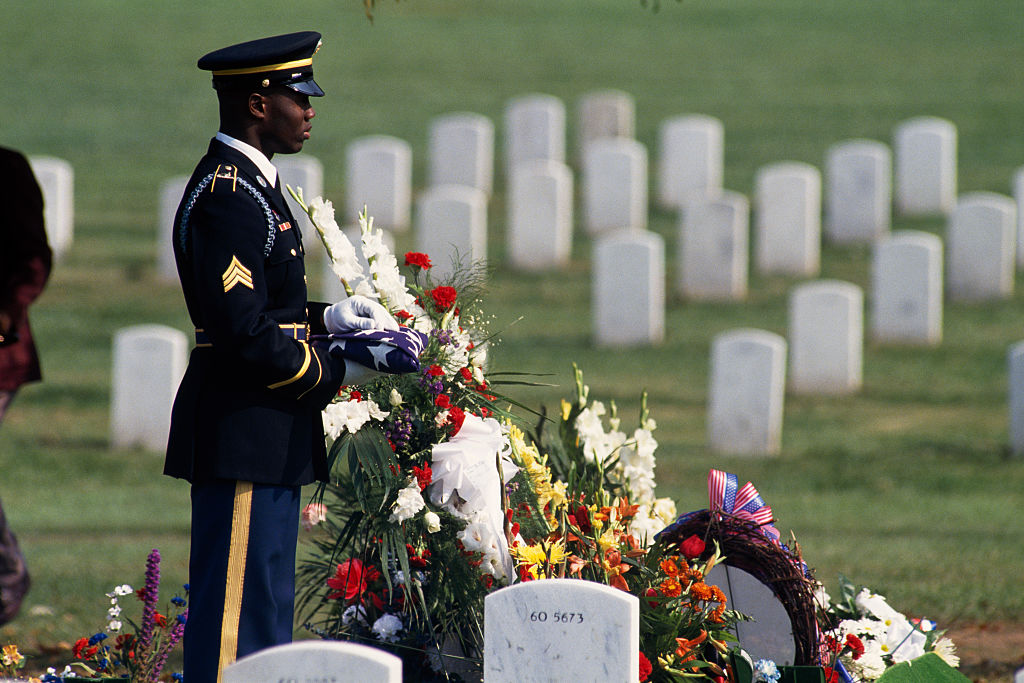D-Day hero recounts horror of Normandy invasion
On June 6, 1944, more than 150,000 American, British and Canadian troops landed on the shores of northern France as part of D-Day, a major turning point in World War II that helped lead to the defeat of Nazi forces in Europe. About 2,500 of the 73,000 U.S. soldiers who fought in the battle died.
As a 23-year-old army medic, Ray Lambert saved numerous lives in Normandy, despite being wounded himself. Now 98, he recently co-wrote a book called "Every Man a Hero," and he's one of 53 D-Day veterans who will return to Normandy this week.
On that day in 1944, Lambert was in the front of a cramped Higgins boat as it approached the shores of Normandy.
"It was very crowded, cold, guys were seasick," Lambert told CBS News correspondent Jan Crawford.
He was a young, hardscrabble country boy from Alabama turned army medic. Lambert and his brother Bill both enlisted in the war.
"We were both married," Lambert said. "And we agreed that if anything happened to either one of us that the other one would take care of our wives. I had a son that I'd never seen."
The horror of that day began well before Lambert's boat reached the shore.
"As we got in close enough … we could see dead guys on the beach," he said.
Lambert took a bullet through the elbow just as the landing craft's ramp opened to deposit the men. He didn't stop. A man to his right was "obviously drowning," he said, and "had all of his equipment on."
"That was the first person I helped," he said.
Lambert saved at least 15 men on D-Day, pulling many of them to shore and seeking shelter behind a large rock.
"How did you keep going?" Crawford asked.
"You really didn't have a choice," he said with a slight chuckle. "You either drown or move forward."
He kept going after shrapnel later tore through his thigh. And while working to save another soldier, the two were pinned under the ramp of a boat bringing in more Americans.
"You had that conscious thought, this was it?" Crawford asked.
"That's when I asked God to give me one more chance to save this guy's life." Lambert responded.
"You didn't pray for your life?" Crawford asked.
"I was thinking of the guy I had," he said.
Miraculously, the ramp suddenly lifted. Lambert saved his man, but his own back was broken. He dragged himself ashore, looking down the beach before losing consciousness.
Lambert, now 98, says even at the time the soldiers understood the Normandy invasion was pivotal to winning the war.
"We knew that this was either a do or die situation," he said.
Lambert and his brother made it out alive. He keeps pictures and awards in the front room of his North Carolina home — but said he doesn't need objects to remember.
"There is hardly a day goes by that I haven't thought of some soldier or some incident that happened," he said.
Lambert has gone back to Omaha Beach several times since that day 75 years ago — and the rock where his men took shelter has been named Ray's Rock.
He's been reluctant to share his story, until now.
"I felt, you know, there's someone who'll say, 'Gee — you — Ray thinks he was a great hero,' or somethin' like that. I'm not. You know, I'm just — I'm a veteran."
But he decided to speak for his fellow soldiers who longer can. The title of his book says it all — aptly named "Every Man a Hero."
"When we were talkin' about a name for the book, the name came up, 'Ray Lambert The Hero,'" he said. "And so I said, 'No. Every man is a hero. Not me.'"



